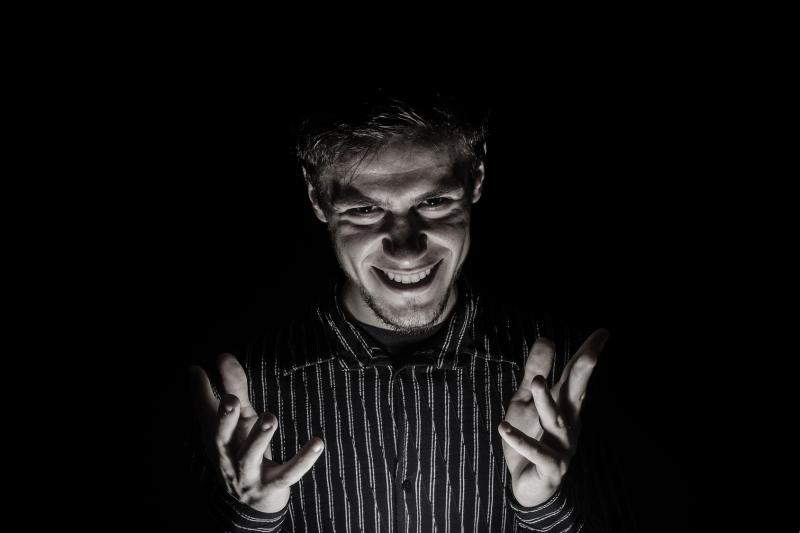The Hare Psychopathy Checklist-Revised, with demonstrated reliability and validity, is rapidly being adopted worldwide as the standard instrument for researchers and clinicians. The PCL-R and PCL:SV are strong predictors of recidivism, violence and response to therapeutic intervention. The Hare Self-Report Psychopathy Scale (SRP-4); Published by Multi-Health Systems. Robert Hare was named to the Order of Canada, one of Canada's highest civilian honours. The Order of Canada recognizes a lifetime of achievement and contribution to society, and was presented by the Governor General of Canada. Hare (2003) Where to Purchase. Pearson Assessments. Reliability and Validity. The Hare Psychopathy Checklist is an established instrument for measuring psychopathy. Hare’s used a sample of 4,981 prison inmates and 1,246 inmates to calculate an alpha coefficient of 0.87 for both. Age Range: 18 years and older Administration Time Structured interview: 90 – 120 minutes Collateral review: 60 minutes PCL–R assessment: 15 – 20 minutes Administration Type: Structured Interview, Clinician-completed Qualification Level C Assesses psychopathic (antisocial) personality disorders. The 2nd Edition of the PCL-RTM supplants its predecessor as the.
“If I wasn’t studying psychopaths in prison, I’d do it at the stock exchange”, says Dr. Hare
Dr. Robert Hare is a Canadian psychiatrist who’s a world-renowned expert on psychopaths. His Hare Psychopathy Checklist-Revised (PCL-R)“is a diagnostic tool used to rate a person’s psychopathic or antisocial tendencies. People who are psychopathic prey ruthlessly on others using charm, deceit, violence or other methods that allow them to get with they want. The symptoms of psychopathy include: lack of a conscience or sense of guilt, lack of empathy, egocentricity, pathological lying, repeated violations of social norms, disregard for the law, shallow emotions, and a history of victimizing others”.
The twenty traits assessed by the PCL-R score are:
- glib and superficial charm
- grandiose (exaggeratedly high) estimation of self
- need for stimulation
- pathological lying
- cunning and manipulativeness
- lack of remorse or guilt
- shallow affect (superficial emotional responsiveness)
- callousness and lack of empathy
- parasitic lifestyle
- poor behavioral controls
- sexual promiscuity
- early behavior problems
- lack of realistic long-term goals
- impulsivity
- irresponsibility
- failure to accept responsibility for own actions
- many short-term marital relationships
- juvenile delinquency
- revocation of conditional release
- criminal versatility
Read more: Hare Psychopathy Checklist
Click to see full answer.

 Beside this, who created the PCL R?
Beside this, who created the PCL R?The PCL was originally developed in the 1970s by Canadian psychologist Robert D. Hare for use in psychology experiments, based partly on Hare's work with male offenders and forensic inmates in Vancouver, and partly on an influential clinical profile by American psychiatrist Hervey M. Cleckley first published in 1941.
Secondly, what does the PCL R measure? Developed to assess symptoms of psychopathy, the Hare Psychopathy Checklist-Revised (PCL-R) is a diagnostic tool which allows people to rate their psychopathic or antisocial habits. The PCL-R is used for legal, clinical, or research purposes as a indicator of potential risk posed by subject or prisoners.
Besides, when was the PCL R developed?

The Hare Psychopathy Checklist-Revised (PCL-R) is a diagnostic tool used to rate a person's psychopathic or antisocial tendencies. It was developed in the 1970's by Dr.
What are the 40 traits of a psychopath?
Robert Hare Psychopathy Checklist Pcl-r

Robert Hare Psychopathy Checklist Revised
The list in full is: glibness and superficial charm, grandiose sense of self-worth, pathological lying, cunning/manipulative, lack of remorse, emotional shallowness, callousness and lack of empathy, unwillingness to accept responsibility for actions, a tendency to boredom, a parasitic lifestyle, a lack of realistic